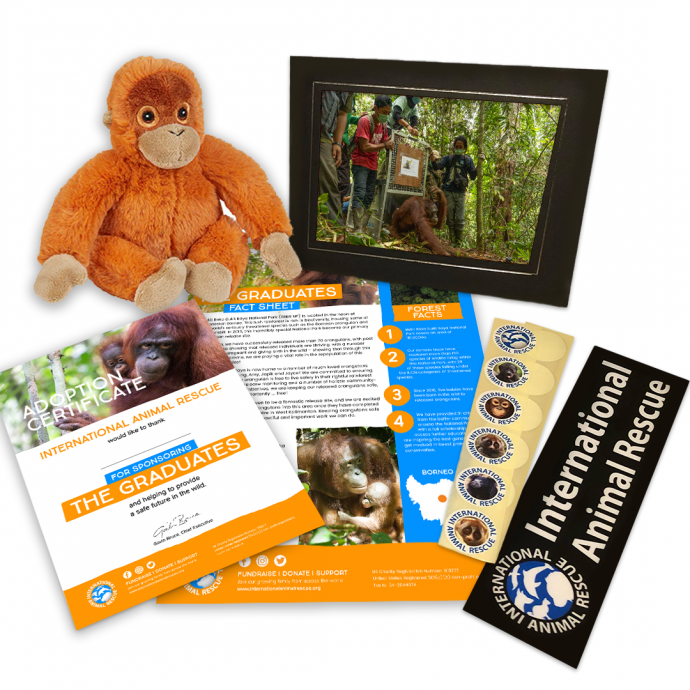The Graduates
Intro
Keep orangutans safe where they belong, in the wild, by adopting The Graduates.
Since the launch of our orangutan release programme in the Bukit Baka Bukit Raya National Park in 2016, we are proud to have released 75 orangutans. These orangutans, The Graduates, were deemed ready to return to their home in the wild after rehabilitative care at the orangutan rescue centre in Ketapang.
Once released, it is vital that the orangutans are kept safe and allowed to thrive in their rightful home, the rainforest. Through a number of holistic programmes and initiatives, we have established a hugely successful release programme, which is not only keeping the released orangutans safe and protected, it is also repopulating a Critically Endangered species, with a number of the released orangutans going on to give birth in the wild.
Adopt The Graduates today and you will receive regular updates on releases and the many amazing programmes running in this area – whenever possible we will endeavour to update you on some of the much loved released orangutans such as Budi, Gunung, Amy, Japik and Joyce!
What makes up 'the graduates'?
-
Release
-
Post Release Monitoring
-
Community Outreach and Education
-
Biodiversity and Forest Health Surveys
At International Animal Rescue, we believe orangutans belong in the wild. The ultimate goal of the rehabilitation process at the centre, is to return as many rescued orangutans as possible to their rainforest home.
Our primary release site is the Bukit Baka Bukit Raya National Park (BBBR NP), located in the heart of Indonesian Borneo. This lush rainforest is rich in biodiversity, housing some of the world’s seriously threatened animals such as the Bornean orangutan and the hornbill. Covering a total area of 180,000Ha, BBBR NP was identified as a suitable release site for rehabilitated orangutans as, although the park already had a wild population of orangutans, their densities were too low for the population to be considered viable.
Since the launch of the release programme in BBBR NP, our partners in Indonesia have released 75 orangutans into this area, with data showing that released individuals are thriving, with a number even falling pregnant and giving birth in the wild – showing that through this release programme, we are playing a vital role in the repopulation of this incredible species.
Once an orangutan is returned to the wild, the post monitoring team follow their progress for a period of up to two years, to ensure they are thriving in their new forest home. This dedicated team works long days, which begin before the orangutan wakes in their nest and don’t end until they have settled down for the night.
As an orangutan adapts to life in the wild, they will increasingly avoid any risk of human interaction – meaning a released orangutan that has adapted really well might not be seen for many years. Sometimes, the monitoring team don’t see a released orangutan for some time and then witness something amazing…
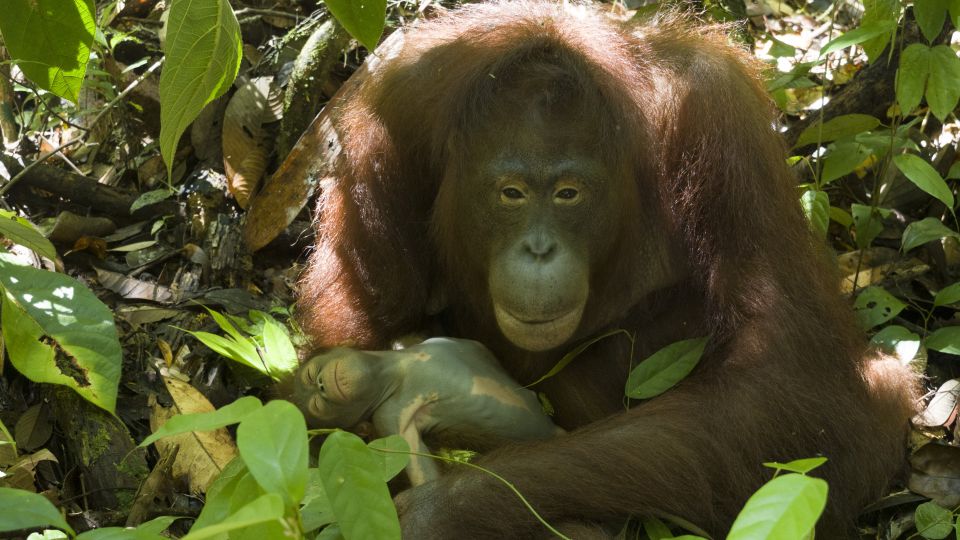
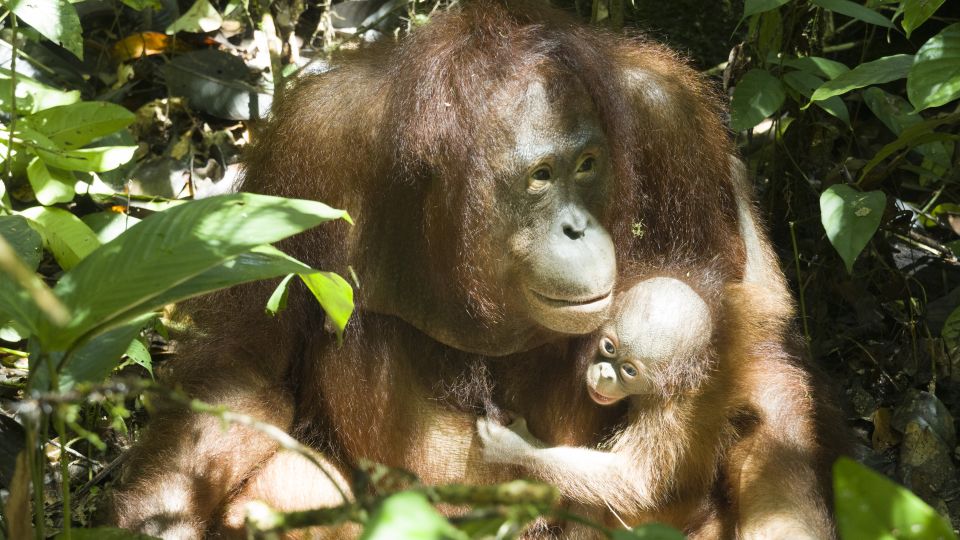
Muria’s Story
Muria was rescued in June 2014, when she was just four years old. She had been kept as a pet in a small wooden cage, for three years. Muria underwent rehabilitation at the centre and soon displayed the natural behaviours she would need to survive in the wild. In 2018, Muria was showing so many independent wild behaviours that she was selected as a surrogate mother and was introduced to Zoya – a young orangutan who was in desperate need of a mother’s care. In February 2019, they were released together, into the Bukit Baka Bukit Raya National Park.
The team were correct - Muria was a natural mother and in April 2022, she was seen with a baby of her own! To see Muria become a mother in the wild is truly one of the most beautiful, hopeful and promising things we can witness! The monitoring team were lucky enough to see Muria and her baby, named Bumi, again in July 2023 – they are both doing well and these photos are incredibly special!
To see the release programme resulting in wild births, repopulating a Critically Endangered species, is a true testament to the power of this project!
The key to the success of this release programme lies in the hands of the local people who live in the villages that surround this National Park. To ensure that released orangutans are safe and protected, we must work with, and listen to, the needs of the local villagers, inspiring and empowering them to cherish and protect the forest that surrounds them.
The forest-edge communities in the buffer zone of BBBR NP face social and economic difficulties, with about 80% of the households in these communities living in poverty. With limited access to education, healthcare, transportation and communication, when we first started working in the region, the majority (78%) of the local people admitted to illegally logging inside the National Park to earn money for their families. This finding led to further, in depth conversations with villagers to identify their needs and the reasons why they were engaging in these illegal behaviours. Through these conversations, we were able to identify some key areas to focus on to improve the quality of life for these communities and in turn reduce incidence of illegal logging and poaching in the surrounding National Park. The two key identified areas in need of urgent improvement were: access to education and financial hardship.
Our partners now run a number of initiatives in these areas, including a scholarship programme, educational support initiatives and the provision of training and access to alternative livelihoods. These activities have been welcomed and seen huge success rates – reducing illegal activities in the National Park and empowering the local people to become active advocates for our work – therefore playing a huge role in the protection of The Graduates and the rich biodiversity that calls Bukit Baka Bukit Raya home
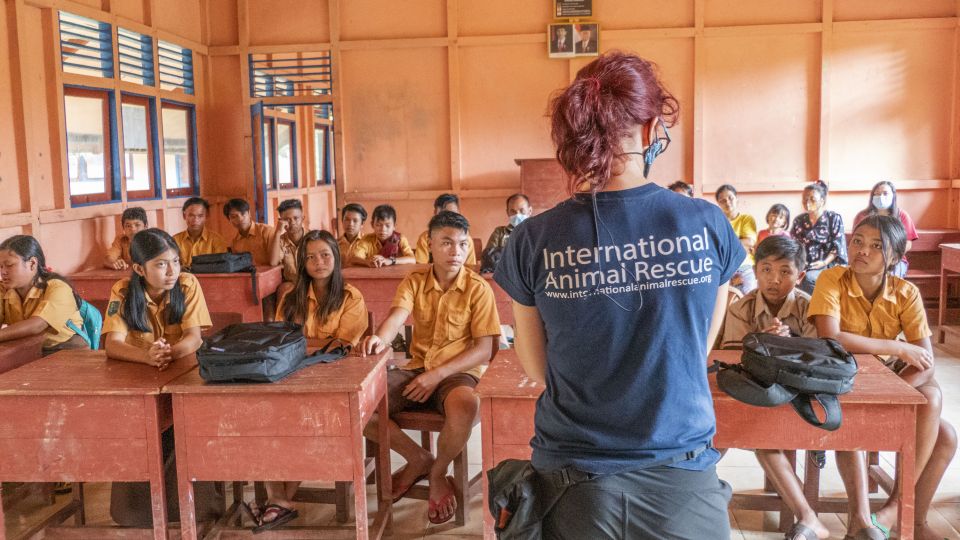
Bukit Baka Bukit Raya is a hotspot of Borneo’s biodiversity. It is vital to have a have a deep and thorough understanding of the flora and fauna that makes up the release site – to monitor potential threats, competition and ensure there is an abundance of food to allow released orangutans to thrive. With 21 camera traps set up across 740ha and regular census surveys, we are able to track trends and analyse potential risks or occurrences of poaching or other activities.
The camera traps truly give us insight into what a special place this National Park is, with sightings of incredible animals such as the rare Storm Stork! By keeping this rainforest safe for the released orangutans, we are protecting countless vulnerable species.
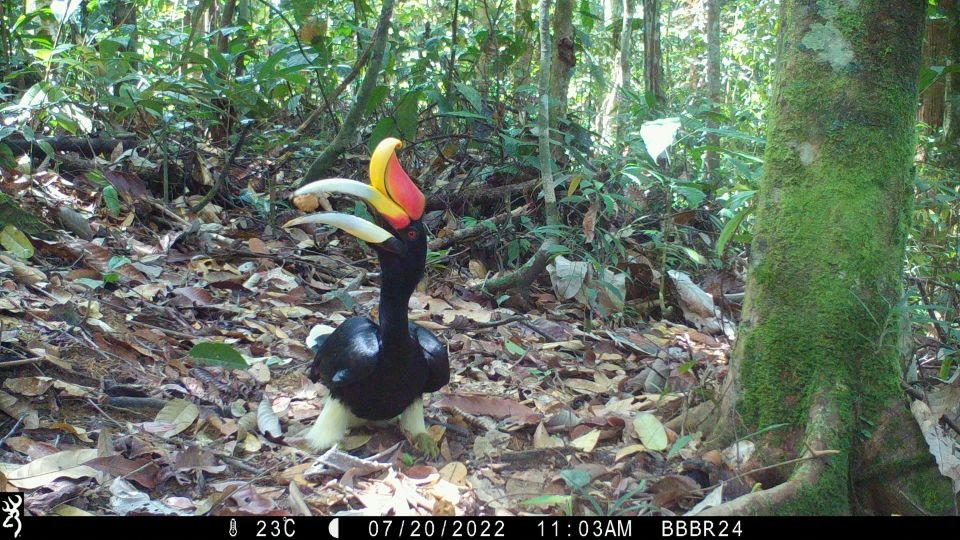
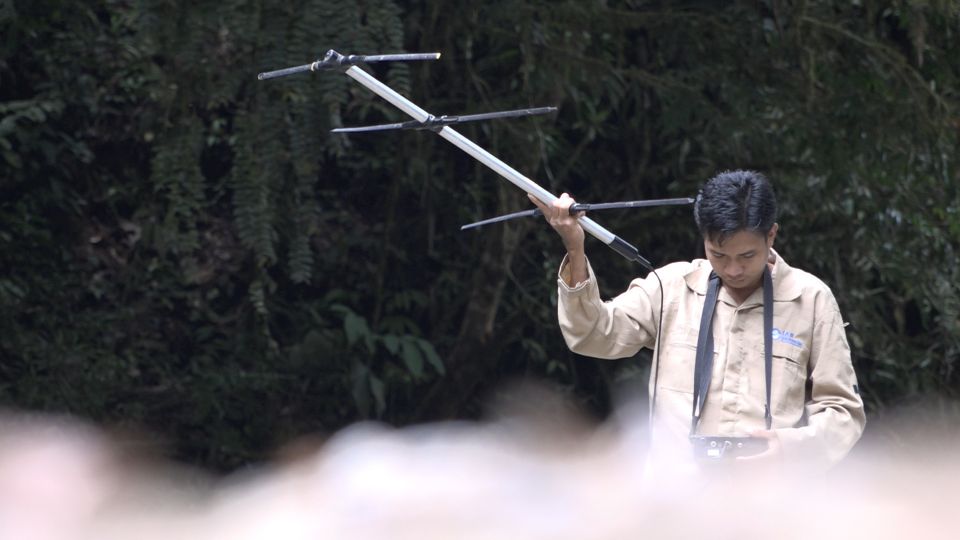
What you get
Adopt The Graduates today and you will receive:
- A personalised certificate in recognition of your adoption
- A high quality picture of an orangutan release to frame
- An animal fact sheet with information on The Graduates and our release site as a whole
- Exclusive news, photos and videos sent from our team at the release site sent via email
- A soft plush orangutan toy (optional)
